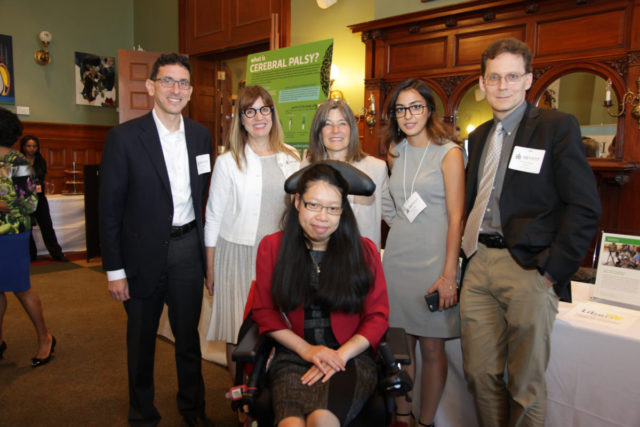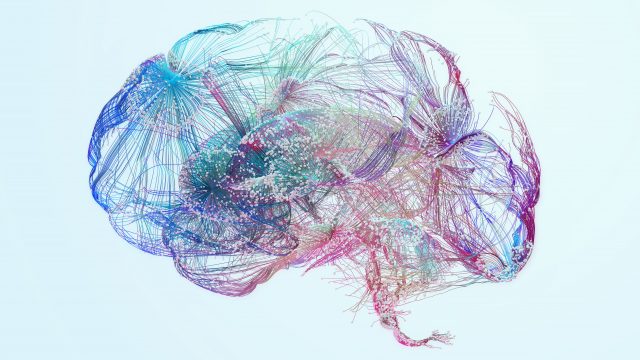Brain disorders affect one in three Ontarians and the direct cost to the province exceeds $4 billion each year. The indirect costs from work missed and the emotional costs for families are incalculable and create an urgency to address brain health by means of innovation and translational research that can improve the quality of life for people living with brain disorders.
To address this urgency, Ontario Brain Institute (OBI) created Ontario-wide, Integrated Discovery Programs (ID Programs) focusing on brain disorders that affect millions of Ontarians. The goal of these programs is to drive patient-focused neuroscience research across multiple sites, disciplines and sectors and address the large personal, societal and economic burden while building on Ontario’s key neuroscience strengths.
Our ID Programs connect researchers across distances, disorders and disciplines on a common vision and goal. They incorporate researchers, clinicians, industry, and patients (and their advocates) into a team science approach that encourages knowledge sharing and expertise within and across our five ID Programs. With the help of this collaborative model, OBI has fashioned one of the largest integrated and translational neuroscience communities globally.
The impact of our approach has been remarkable. By connecting researchers across distances towards a single focus, OBI supported 3689 collaborations between individuals across 231 initiatives and connected them to 21 patient groups and 22 industry partners, resulting in a 31% increase in connectivity across the neuroscience community from 2013 to 2017. These collaborations have led to 200 peer reviewed publications and 226 articles in the media. More importantly, the work is improving the lives of people living with brain disorders and the quality of care they receive.
OBI’s integrated approach has facilitated faster discovery in many key areas.
- CP-NET aims to increase our understanding of cerebral palsy and accelerate the development of new treatments. To contribute to this overall goal, CP-NET brought together researchers from nine clinical sites to explore possible genetic links to cerebral palsy. The work demonstrated that there are genetic risk factors for cerebral palsy, transforming our understanding of what causes the disorder and creating the potential for earlier detection and treatment.
- EpLink researchers demonstrated that a ketogenic diet (a high fat, low carbohydrate diet) is a cost-effective way of treating seizures in children with drug-resistant epilepsy. The study showed that children on the ketogenic diet made significantly fewer emergency department visits (2.5 to 2.1 visits per person, per year) and cost the healthcare system significantly less – $630 less per person each year. The ketogenic diet is an effective treatment for children with drug-resistant epilepsy and this study shows that it also helps save the healthcare system money. Following this discovery, EpLink is working with the Ontario-based company Ketogen to see if the ketogenic diet therapy can be converted into a pill.
- ONDRI developed “ONDRISeq”, a new genetic screening test for neurodegenerative diseases (like Alzheimer’s) that is more comprehensive and cheaper than the current test. Currently, this type of sequencing is performed outside of Canada and costs Ontario $4,744 per test. ONDRIseq costs $300-$500 per test, is done in Ontario, and when implemented will save the province $4.2 million per year.
- CAN-BIND researchers have partnered with the Mood Disorders Association of Ontario and the Canadian Network for Mood and Anxiety Treatments (CANMAT) to develop a lay version of the Canada’s depression treatment guidelines. The new public-friendly guidelines, called CANMAT Health Options for Integrated Care and Empowerment in Depression (CHOICE-D), are being developed by a committee of clinical experts and patients to help ensure that the content is relevant and actionable for patients.
- POND has partnered with the James Lind Alliance to conduct a research priority setting initiative. This was done in full partnership with patients, carers, advocates, and health/education professionals who consolidated, prioritized and ultimately distilled over 1200 questions into a top 10 list of research priorities. This list will serve as a powerful and important tool to drive future patient-oriented neurodevelopmental disorders research. OBI has published the top 10 questions and is working with researchers, other funders, and policy makers to ensure that these priorities are addressed.
OBI is helping address the challenges of common and costly brain disorders. We are building a community of researchers, clinicians, patients, and industry – a community that works together closely to quickly translate discovery into impact.


